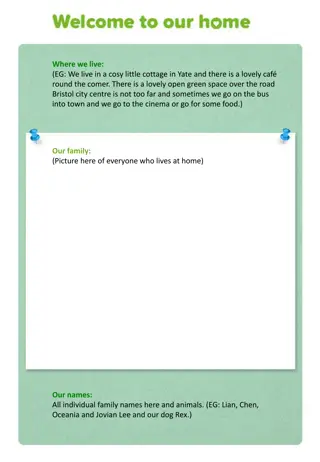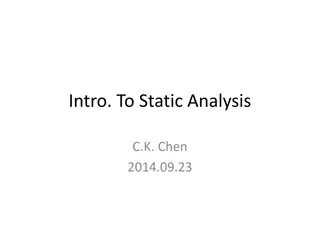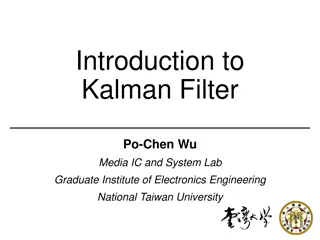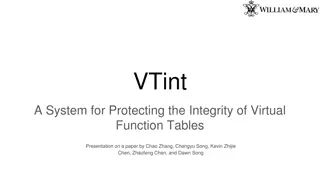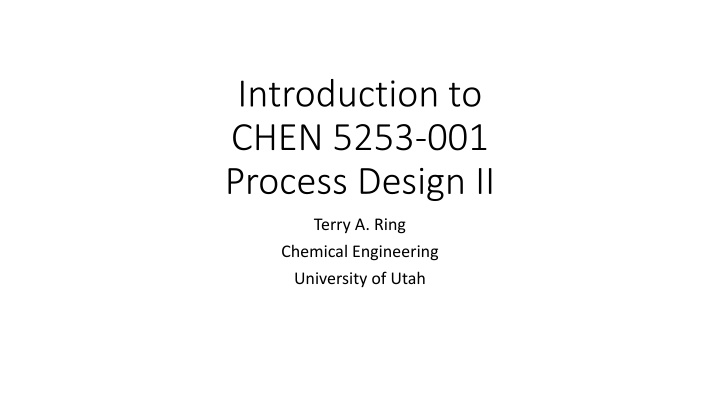
Chemical Engineering Course - Process Design II at University of Utah
Explore the CHEN 5253-001 Process Design II course at the University of Utah, focusing on computer-aided process design, simulation, and complex recycle processes. Get ready for open-ended projects with strict deadlines and creative thinking requirements. Learn about the syllabus, grading, and course structure in this challenging yet rewarding course.
Download Presentation

Please find below an Image/Link to download the presentation.
The content on the website is provided AS IS for your information and personal use only. It may not be sold, licensed, or shared on other websites without obtaining consent from the author. If you encounter any issues during the download, it is possible that the publisher has removed the file from their server.
You are allowed to download the files provided on this website for personal or commercial use, subject to the condition that they are used lawfully. All files are the property of their respective owners.
The content on the website is provided AS IS for your information and personal use only. It may not be sold, licensed, or shared on other websites without obtaining consent from the author.
E N D
Presentation Transcript
Introduction to CHEN 5253-001 Process Design II Terry A. Ring Chemical Engineering University of Utah
Welcome Back Hope you enjoyed your Holiday Break. Your last Semester in Chemical Engineering! Start the count down to the big paycheck! Stay Healthy! There are some nasty influenza viruses out there.
Design II is Different Open ended problems Requires creative thinking Projects with reports and deadlines that are strictly enforced. There is never one right answer! There is a most cost effective and operationally functional answer, however.
Course Description CHEN 5253 Process Design II (3) Prerequisite: CHFEN 4253 and 4903, Major standing. Computer-aided process design and simulation; solution of complex recycle processes and modeling of process equipment. Comprehensive design project leading to preparation of a process design and economic evaluation report. M-W-F 8:35 AM-9:25 AM WEB L105 Help Session ICC Friday 10-12 AM?? HWs Due on Wednesday Midnight via Canvas
Syllabus Prof. Terry A. Ring MEB 2290 phone 801-585-5705 email: ring@chemeng.utah.edu Office Hours: M 10:00am - 12:00am or by appointment Dr. Palash Panja 423 Wakara Way, Suite 300, Salt Lake City, Utah 84108 office:801-585-9829 cell: 801-673-7082 email: ppanja@egi.utah.edu TA-1 Franky Curry Office: MEB 4th Floor Cubical Email: frankacurry@gmail.com Office Hours: TA-2 Jebin Elias Office: MEB 4th Floor Cubical Email: jebin.elias@utah.edu Office Hours: Weekly Help Session: TBD
Syllabus - Grading No Final Exam (only a final Design Report) Homework: Weekly Design Reports (Submit via Canvas) Comprehensive Design Report Planning and Weekly Status Report Memo s Written Report of Comprehensive Design Project Submitted via Canvas (The comprehensive design report can be a team activity.) 50% 5% 45% Students should be able to independently set up, solve, and explain solutions to all problems. Students are encouraged to discuss with other students about how to approach and solve the homework problems and develop process models. Although collaboration is encouraged, each student must perform his/her own work and submit a unique, individual memo report.No points will be given to students whose assignment submissions mirror those of other students.
Syllabus Legal Stuff There are more details on the Syllabus. Addressing Sexual Misconduct If you or someone you know has been harassed or assaulted, you are encouraged to report it to the Title IX Coordinator in the Office of Equal Opportunity and Affirmative Action, 135 Park Building, 801-581-8365, or the Office of the Dean of Students, 270 Union Building, 801-581-7066. Accommodations Policy Some of the writings, lectures or presentations in this course may include material that conflicts with the core beliefs of individuals. Please review this syllabus carefully to see if this course is one that you are committed to taking. If you have a concern, please discuss it with the instructor at your earliest convenience. Academic Policies and Deadlines Academic policies and guidelines from the College of Engineering, which include information about withdrawal procedures, are available online at the College of Engineering Academic Affairs web page. Academic Misconduct All instances of academic misconduct (Cheating) will be handled in accordance with the Student Code (http.//regulations.Utah.edu/academics/6-400.php) Safety https://safeu.utah.edu
Course Description Before Spring Break Course content is divided into ten weekly subject areas after a review of process economics. Each subject area involves (1) weekly reading material and (2) a weekly homework assignment All are memo reports. 6 weekly HW in all. Review of Process Economics Process Creation and Process Simulation Heuristics Reactors Separation Systems Reactor, Separation and Recycle Effects of Impurities in Processes Heat and Power Integration Flow Sheet Optimization Plant-wide Control Sequential Batch Processing Project Management AICHE Contest Problem 60 days Max. 4 Member Team Individual No Homework
Is Design Easy or Hard? Design is Easy! Good Software You don t have to think so hard! Many right answers You are never wrong! Everyone thinks that they can do it Although few do it well Some get fired for their designs! Design is Hard! Needs to be practiced Lots of rules 53 Rules of Thumb just for Process Simulation Lots of constraints Requires creativity Hyper focus on details Iterative process with lots of recycle loops Difficult to learn from books, lectures and videos Experience is the only real teacher
HW 1 Determine CAPEX & OPEX &Profitability Mass & Energy Balance
HW 1 CAPEX Equipment Costing OPEX & Profitability Profitability Analysis 4.0
Canvas Home Page CHEN 5253-001 Spring 2018 Welcome to the landing page for Process Design I. Below are useful links for the course. Course Syllabus note course website is on Canvas Course Schedule with links to Lecture Slides and Screen Casts Perry's Chemical Engineers' Handbook. (8th edition) online Student Companion Site. for Seider's Product and Process Design Principles book Equipment Costing (Excel) Profitability Analysis 4.0 (Excel) YouTube Aspen Plus v9 Tutorial Series. by Lafayette University





